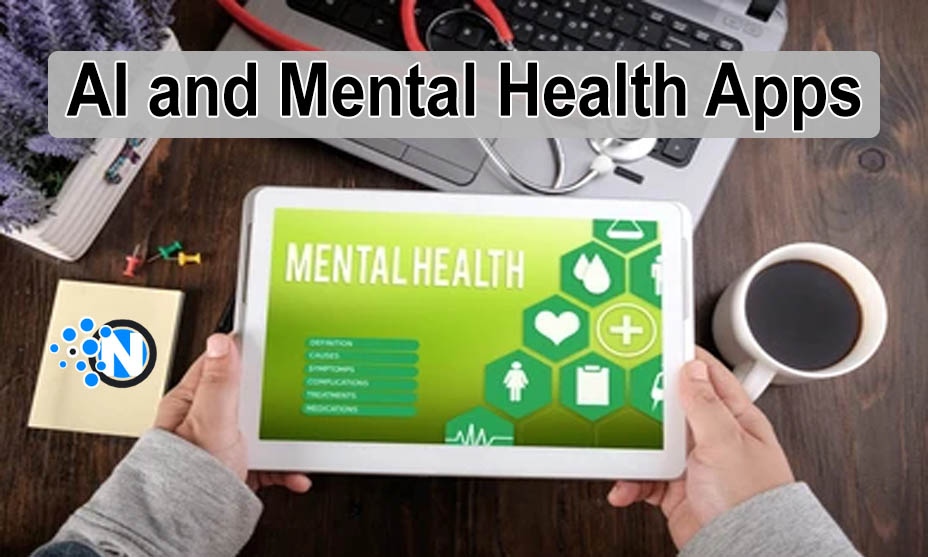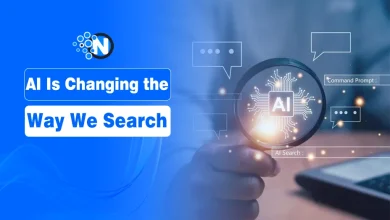
The intersection of artificial intelligence (AI) and mental health has helped a lot in supporting individuals on their mental health journeys. With the rise of AI-powered mental health apps, the promises of increased accessibility, personalized interferences, and early detection of mental health issues have sparked enthusiasm. However, these promises are accompanied by potential pitfalls and privacy concerns that demand careful consideration.
This article will discuss the landscape of AI-driven mental health applications, examining the promises they hold, the potential pitfalls they may encounter, and the privacy concerns that have emerged.
The Promise of AI in Mental Health
Accessibility and Affordability
The accessibility of mental health support has long been a global challenge. Traditional therapeutic interventions often face barriers such as prohibitive costs, limited geographical availability, and the pervasive stigma associated with seeking help. According to PIA, AI mental health apps have emerged as a potential solution capable of reaching a diverse and global audience. By providing affordable and accessible support, these apps aim to bridge the gap for individuals who might otherwise go untreated.
The promise lies not only in breaking down financial barriers but also in overcoming geographical constraints. Remote areas or regions with limited mental health resources can benefit significantly from the reach of AI-driven apps. However, developers must remain vigilant to ensure that these apps are designed with inclusivity in mind, considering factors such as language, cultural sensitivity, and diverse user needs.
Personalization of Interventions
One of the most compelling aspects of AI in mental health is its ability to personalize interventions. Traditional therapeutic approaches often follow standardized protocols, but AI allows for a more nuanced and tailored approach. AI algorithms can adapt and customize recommendations by analyzing vast amounts of data, including user behavior, preferences, and responses to various interventions.
For instance, an AI-powered mental health app might learn from a user’s interactions, understanding which therapeutic techniques resonate most effectively. Over time, this personalized approach can enhance the effectiveness of mental health support, making interventions more targeted and relevant to each user’s unique needs. However, striking the right balance between personalization and user consent is crucial to prevent overstepping privacy boundaries.
Early Detection and Intervention
AI’s capacity to analyze patterns and anomalies in user data opens the door to early detection of mental health issues. By continuously monitoring user interactions with the app, AI algorithms can identify subtle shifts in behavior or mood that may indicate the onset of a mental health challenge. This early detection holds the promise of timely intervention, potentially preventing the escalation of mental health issues.
Imagine an AI app that recognizes changes in sleep patterns, social interactions, or language use – subtle indicators that might go unnoticed by the user or their immediate circle. The app could then provide real-time insights and support, acting as a proactive tool in the maintenance of mental well-being. However, ethical considerations, user consent, and the potential for false positives must be carefully navigated to ensure the responsible use of these early detection capabilities.
The Pitfalls of AI in Mental Health Apps
Algorithmic Bias
One of the most pressing pitfalls associated with AI in mental health is the potential for algorithmic bias. If the data used to train these algorithms is not diverse and representative, the AI system may inadvertently perpetuate existing biases. For example, if the training data is predominantly from a specific demographic, the AI may struggle to provide effective support for individuals from different cultural backgrounds. Forbes revealed that the risk of biased algorithms is significant in various domains, such as facial recognition misidentifying people of color and mortgage algorithms charging higher interest rates to certain racial groups.
Addressing algorithmic bias requires a commitment to diverse and inclusive data sets. Developers must be conscious of the potential biases in both historical data and the algorithms themselves. Regular audits and updates to the training data can help mitigate bias and ensure that AI-driven mental health apps are inclusive and effective for a broad range of users.
Overreliance on Technology
While AI has the potential to enhance mental health care, there is a risk of overreliance on technology. Effective mental health support often involves human connection, empathy, and understanding – elements that AI, no matter how advanced, may struggle to replicate. If users become overly dependent on AI for their mental well-being, the risk of neglecting the human aspect of care looms large.
The human touch in mental health support is irreplaceable. Overemphasis on technology could lead to a dehumanized approach, potentially diminishing the therapeutic value of interventions. Striking a balance between the efficiency of AI-driven tools and the empathetic guidance of human professionals is essential to ensure a holistic and effective mental health support system.
Ethical Concerns
The use of AI in mental health raises a lot of ethical questions. Issues such as user consent, data ownership, and the responsibility of developers to prioritize user well-being must be addressed carefully. Users need the guarantee that their data is handled responsibly and that the algorithms are designed with their best interests in mind.
Transparency is key to addressing ethical concerns. Developers must be transparent about how AI algorithms operate, what data is being collected, and how it will be used. Providing users with clear information about the purpose of data collection, the safeguards in place, and the potential implications of using the AI app fosters trust. Establishing ethical guidelines and industry standards can further guide developers in ensuring that their AI-driven mental health apps prioritize the welfare of users.
Privacy Concerns in AI-Driven Mental Health Apps

Data Security and Confidentiality
The sensitive nature of mental health data amplifies the importance of robust data security and confidentiality measures. Users must have confidence that their personal struggles, therapeutic interactions, and any sensitive information shared with the app are kept confidential and secure. Encryption protocols, secure storage practices, and stringent access controls are paramount to ensuring the privacy of mental health data.
Developers should prioritize the implementation of industry-standard security measures and regularly update their systems to protect against emerging threats. Communicating these security measures transparently to users contributes to building trust and confidence in the app’s commitment to data security.
Informed Consent and Transparency
Informed consent is a cornerstone of ethical data practices in mental health apps. Users must be well-informed about how their data will be used, ensuring that they are making conscious choices about their privacy. Developers should provide clear and comprehensible information about data collection practices, the purposes for which the data will be used, and any third parties involved in the process.
Transparency extends beyond initial consent to ongoing communication with users. Regular updates on data usage policies, any changes to the app’s functionality, and insights into how user data contributes to the improvement of the app can maintain user trust over time.
Potential for Misuse
The vast amounts of sensitive data collected by AI-driven mental health apps create the potential for misuse. While the primary goal of these apps is to support mental health, there is a risk that data could be used for other purposes. This may include targeted advertising, third-party data sales, or, in extreme cases, unauthorized access by malicious parties.
Data security and regulatory frameworks must be established and enforced to prevent the misuse of users’ data. Developers should follow strict guidelines and industry standards to ensure that user data is utilized solely for the intended purpose of providing mental health support. Periodic audits and assessments can help identify and rectify any potential misuse of data, further safeguarding user privacy.
Conclusion
As we navigate the evolving landscape of AI mental health apps, the promises, pitfalls, and privacy concerns must be balanced. The potential for increased accessibility, personalized interventions, and early detection of mental health issues holds great promise for global mental well-being. However, addressing algorithmic bias, avoiding overreliance on technology, and navigating ethical and privacy concerns are critical to ensuring that the benefits of AI in mental health are realized responsibly.




